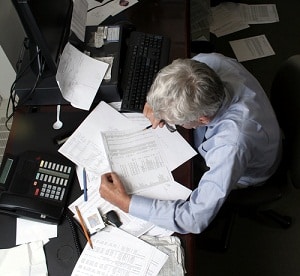As Baby Boomers continue to reach retirement age at a breakneck pace and the American economy continues to expand and add jobs, there’s growing concern over skills gaps and labor shortages. What’s helping to mitigate this demographic trend is the increased willingness of older workers to stay in the workforce in one capacity or another.
Older Workers Choosing to Stay in the Workforce
“According to the America Works Data Center, last fall the United States had 9.5 million job openings but only 6.5 million unemployed workers, Write Ken Dychtwald, Robert Morison and Katy Terveer in an article for Harvard Business Review. “Many industries, including manufacturing, wholesale and retail trade, education, and nearly every kind of health services, have far more openings than candidates with relevant experience—in some cases twice as many.”
The authors report that every day, roughly 10,000 Americans are reaching the traditional retirement milestone age of 65 years. It’s a number that is expected to rise to nearly 15 million by 2032, they say. Fortunately, for employers at least, this aging cohort seems very willing to remain in the labor force.
Paying Attention to Gain Traction
This new reality is something employers need to pay close attention to, particularly when it comes to recruitment and retention. College campuses shouldn’t be seen as the primary source of new talent, and it’s a mistake to assume 60-something employees are on the cusp of retirement (and therefore don’t warrant as much attention in the way of retention efforts).
As Baby Boomers defy traditional retirement norms, their continued engagement in the workforce is crucial in mitigating the demographic trends that continue to put pressure on employers.
This shift necessitates a strategic reevaluation of recruitment and retention practices, urging employers to look beyond college campuses for fresh talent and to reconsider the value of seasoned employees. Embracing this change not only helps bridge the current labor gap but also enriches the workforce with diverse experiences and perspectives, ensuring a more resilient and dynamic economic future.
Lin Grensing-Pophal is a Contributing Editor at HR Daily Advisor.
The post <strong>The Growing Importance of Older Workers</strong> appeared first on HR Daily Advisor.
